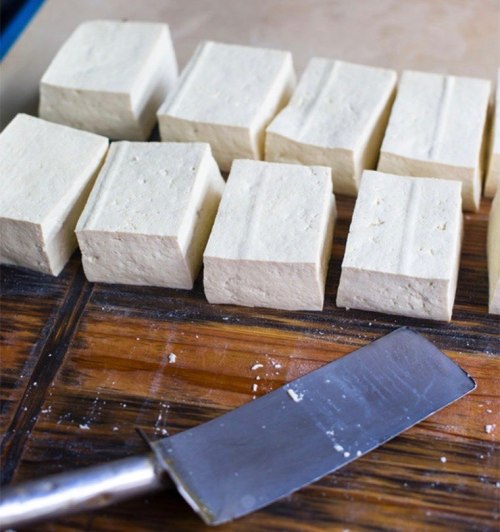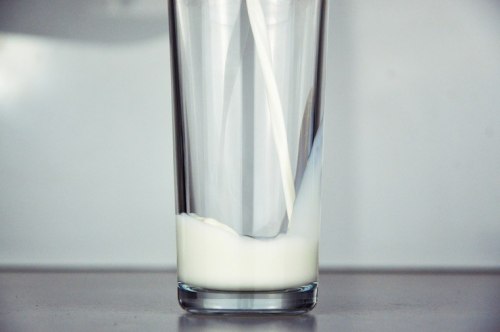Our editors independently select these products. Making a purchase through our links may earn Well+Good a commission
Is soy actually safe to eat?
Functional medicine bigwig Frank Lipman, MD, argues that soy is no "health" food—saying it's linked to endocrine disruption, inflammation, and more.

Sometimes it feels like having a simple cup of coffee is a minefield of decisions: Yes, skipping Splenda is an easy call, but what about the milk? If soy is in your regular rotation—whether it’s in your cup of joe or evening stir-fry—Wellness Council member Frank Lipman, MD, wants you to say sayonara to soy.
While soy may not kill you outright, its ability to undermine health is significant, and as a wellness practitioner I always advise my patients to remove it from their diets. Why? Because soy plays a role in the development of a number of debilitating conditions, which can morph into far larger problems down the line.
For starters, soy disrupts thyroid and endocrine function (which regulates your hormones), possibly creating such issues as fatigue, constipation, and issues with menstruation, perimenopause, and menopause.
While soy may not kill you outright, its ability to undermine health is significant, and as a wellness practitioner I always advise my patients to remove it from their diets.
It interferes with leptin sensitivity, which can set you up for metabolic syndrome. It also helps block your body’s ability to access key minerals like iron, zinc, calcium, and magnesium.
If that weren’t enough, soy is a potentially lethal allergen to a segment of the population and an inflammation-triggering irritant to millions of people who may not even be aware that they’re sensitive to it.
Here’s what you need to know about soy—and how to make better decisions in the dairy aisle.

The good-for-you myth
Many of my patients think that by including more soy milk or tofu in their diet, they’re making a healthful choice—but it’s actually not digested well by humans (though it has a long history as an animal feed).
The cultures that have eaten soy for generations (mostly in Asia) frequently use it in fermented form—as in tempeh, miso, natto, fermented soy, and tamari—which increases the health benefits. Plus they usually use these foods as as condiments, not as the mainstay of a meal.
On top of that, most of the soy in the US comes from factory farms and has been genetically modified, which may itself make it challenging to your microbiome. In short, it’s just not what most of us would call a “health” food.

The milk aisle: decisions, decisions
What if you had to choose between cow’s milk or soy milk (say, at a coffee shop where those are the only options)? The better choice depends on the person.
If you’re sensitive to dairy or lactose intolerant, organic soy may be your safer bet—but ideally not on a daily basis; rather, just when there’s nothing else available. But if you tolerate cow’s milk just fine, then choosing grass-fed cow’s milk would be the better option for you.
The most ideal route is making a nut or seed milk at home, such as almond, cashew, or hemp milk. That’s just not, however, realistic for a lot of our patients.
For store-bought, my favorite choice is full-fat canned coconut milk because it’s less processed than any of the nut milks and most people tend to digest it well—we recommend getting coconut milk unsweetened and in a BPA-free can.
 A pioneer and internationally recognized expert in the fields of integrative and functional Medicine, Dr. Frank Lipman is the founder and director of Eleven Eleven Wellness Center in New York City and the creator of Be Well by Dr. Frank Lipman, a proprietary brand of dietary supplements, detoxifying cleanses and health coaching services and a New York Times best-selling author of The New Health Rules—Simple Changes to Achieve Whole-Body Wellness and 10 Reasons You Feel Old and Get Fat.
A pioneer and internationally recognized expert in the fields of integrative and functional Medicine, Dr. Frank Lipman is the founder and director of Eleven Eleven Wellness Center in New York City and the creator of Be Well by Dr. Frank Lipman, a proprietary brand of dietary supplements, detoxifying cleanses and health coaching services and a New York Times best-selling author of The New Health Rules—Simple Changes to Achieve Whole-Body Wellness and 10 Reasons You Feel Old and Get Fat.
What should Dr. Lipman write about next? Send your questions and suggestions to [email protected].

Sign Up for Our Daily Newsletter
Get all the latest in wellness, trends, food, fitness, beauty, and more delivered right to your inbox.
Got it, you've been added to our email list.










